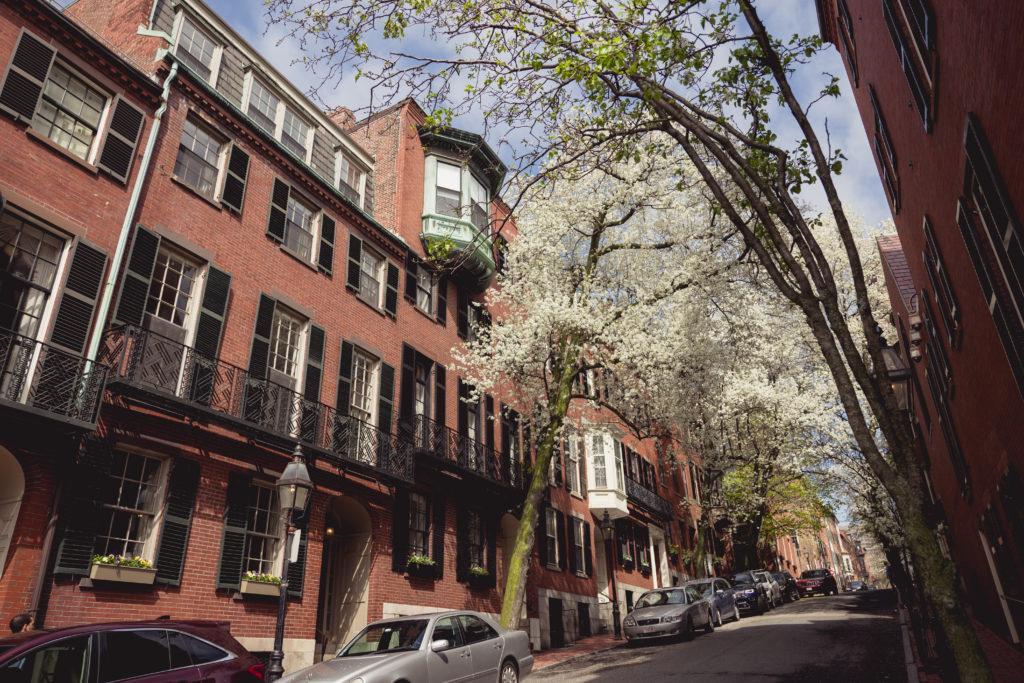By Samantha Rosa, news correspondent
When Yumeng Ren, a first-year graduate student in Northeastern’s School of Journalism, came to Boston, she believed it would be easy to find affordable housing as a student. But this was not the case. Now, she rents an apartment in Malden, Massachusetts — a city more than nine miles away from campus.
“The commute takes an hour each way on the orange line, but a lot of Chinese students live in Malden because the cost to live closer to campus is too high,” Ren said.
As the price to purchase and rent in Boston and surrounding neighborhoods skyrockets, Boston Mayor Martin J. Walsh is working to combat the rise in unaffordable housing. As part of his plan, Walsh announced the Intergenerational Homeshare Pilot, a program to place grad students in low-cost housing by allowing them to rent one room in the houses of older homeowners.
“Boston is home to a growing number of seniors and students,” Walsh said in a Sept. 28 press release. “We know that many of our older residents want to stay in their homes — but need companionship and some simple home maintenance. By matching established adults with extra space with students who are eager to engage with their communities, we’re creating an innovative housing pilot that provides more affordable options for everyone.”
While Ren said she personally prefers to have younger roommates because she believes it makes communication easier, she sees the benefits of home-sharing, especially if it would give her the opportunity to live closer to campus.
“When my lease is up, I want to find something closer to campus, but it is so expensive,” Ren said. “If (the pilot program) was closer to campus, and the cost is lower, I think this program is acceptable.”
The city is launching this program with the help of the city’s Elderly Commission, the Mayor’s Housing Innovation Lab and nesterly, a home sharing organization founded by Massachusetts Institute of Technology alumni Noelle Marcus and Rachel Goor.
There are eight current graduate student and local host pairings, and Marcus, co-founder and president, confirmed one of the students attends Northeastern. She said the identities of the students will be released in November, after the program can be evaluated.
“nesterly is thrilled to be bringing intergenerational homesharing into the digital age in greater Boston,” Marcus said in an Oct. 4 email to The News. “As newly graduated students, we understand the challenges of finding affordable housing in such a tight real estate market, and as urban planners recognize the growing need to ensure households can make better use of their extra space.”
Marcy Ostberg, director of the Mayor’s Housing Innovation Lab, said the creation of the program was a collaborative effort and, alongside the Elderly Commission, they worked together to collect data for over a year on older homeowners around Boston.
Ostberg said they found a substantial number of older homeowners had extra rooms in their houses, and many expressed the need for support around the house. They also noticed the problem of social isolation in older homeowners.
“Having living options is very important, at all ages,” Commissioner Emily Shea of the Commission on Affairs of the Elderly said in an email to The News. “This pilot project from our Age-Friendly Action Plan offers older adults another valuable choice that has financial and social benefits. The goal is to make meaningful options available, so that older Bostonians can continue to thrive at home and in their communities.”
While Osberg said she is unsure if the program will develop city-wide, employees in the Innovation Lab plan to evaluate that potential in December.
“The goal is to learn,” Ostberg said. “We don’t know what we’re going to learn, but the point is to learn as much as we can.”
Namrata Menon, a biotechnology graduate student at Northeastern, said her experiences with finding housing around Boston has been extremely challenging. She prefers to live 15 minutes or closer to campus.
“Housing in Boston is very expensive, and I would like to pay much less than what I am paying currently,” Menon said. “If (the pilot program) is a Northeastern-affiliated program and it is safe, I would definitely have gone for it.”
Kate Brown, a 2017 alumna of Northeastern’s graduate media innovation program, rented a condo in Brighton, Massachusetts, but said the commute became frustrating.
“The commute absolutely sucked, it was an hour each way,” Brown said. “I had to take the green line at Cleveland Circle, get off at Copley, and walk the rest of the way to school.”
She said if she didn’t have connections in Boston from previously living in the area, finding an affordable place would have been a challenge.
“If I didn’t have a network around Boston, I would absolutely look at (the pilot program),” Brown said. “I think it’s a great idea to drive down costs and improve relations between students and people living in the neighborhood.”









